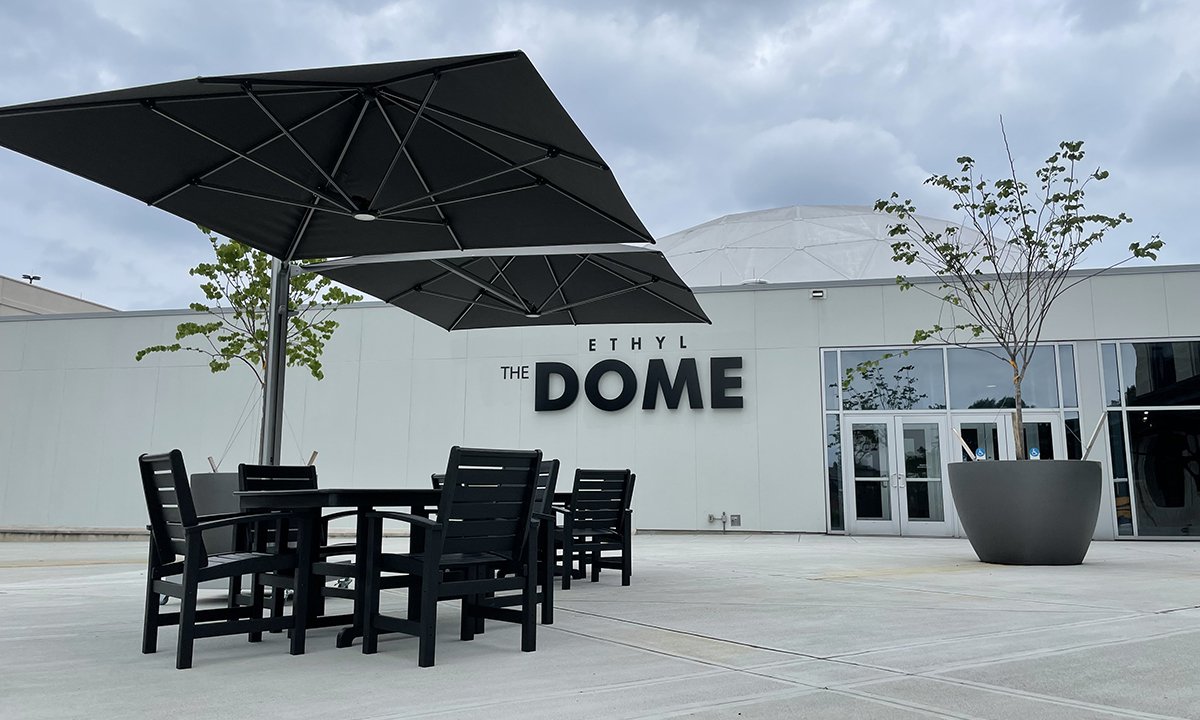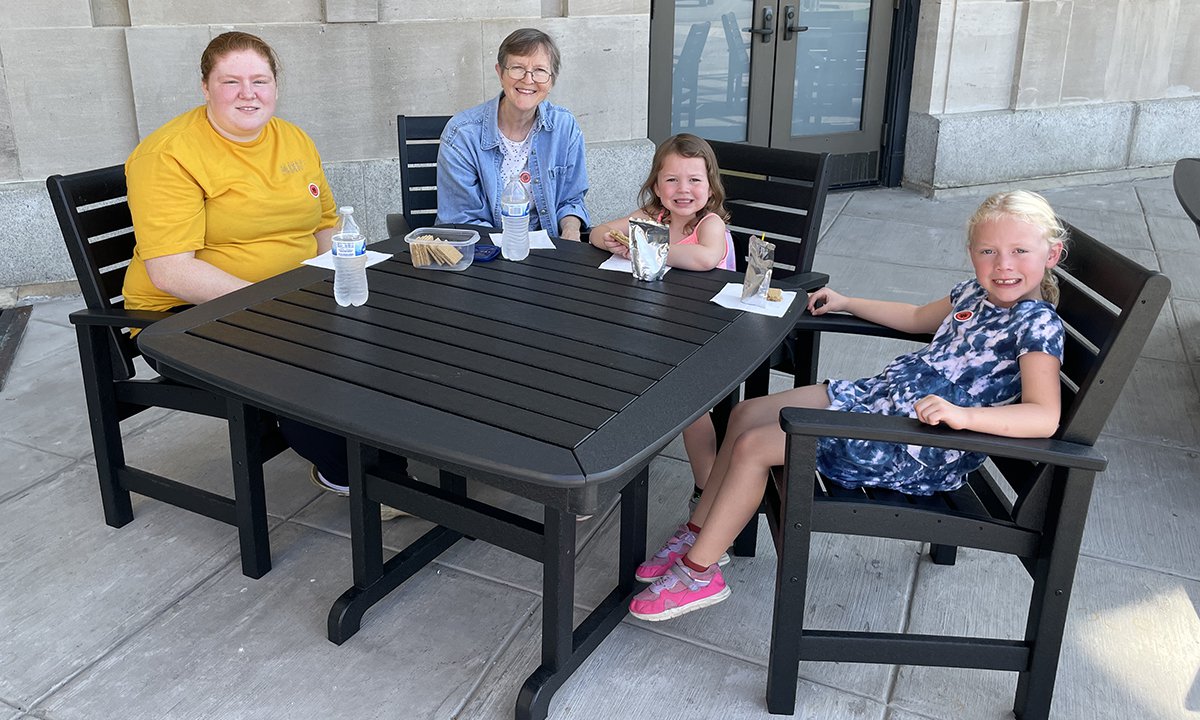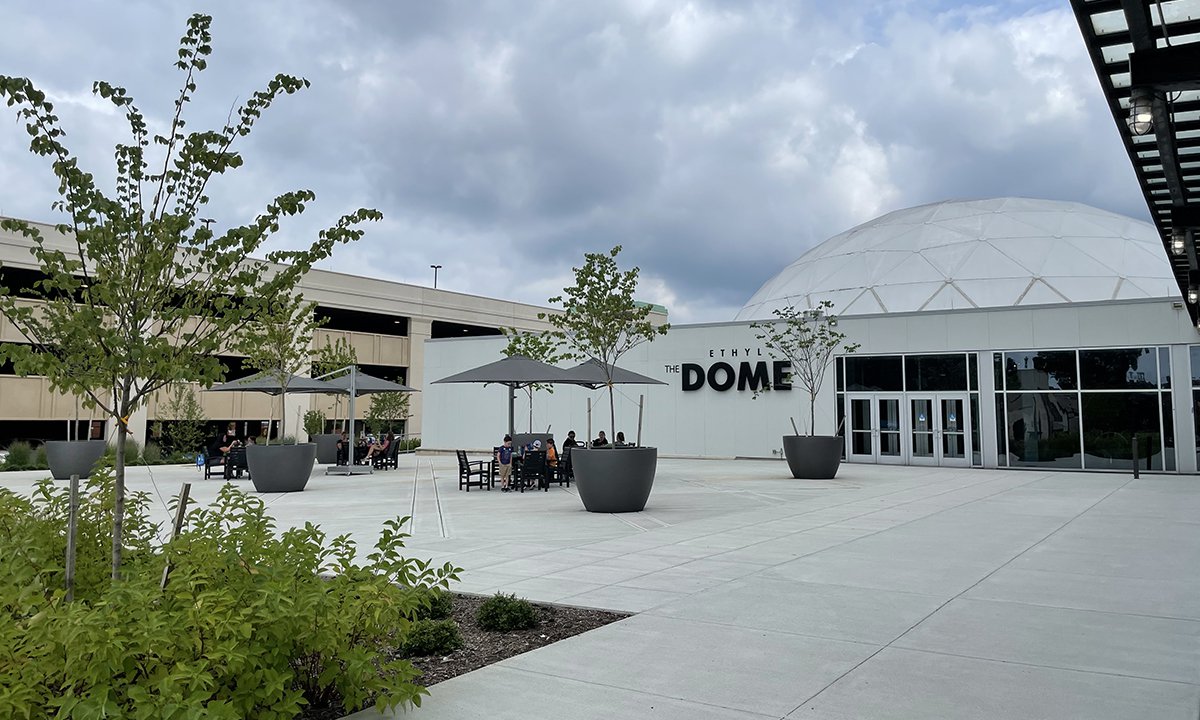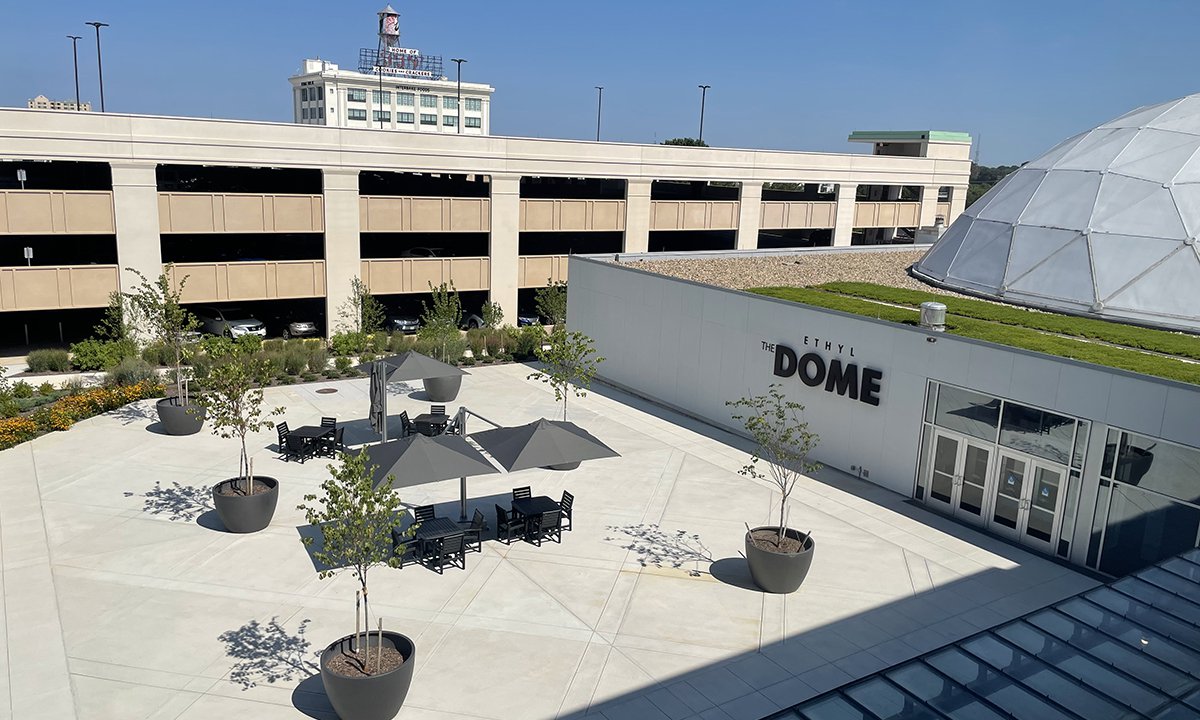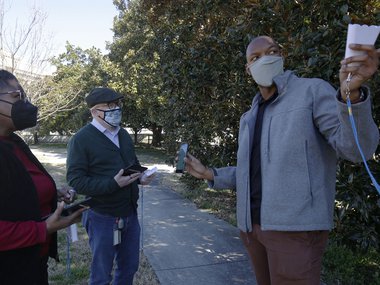Summer, Sun and Sustainability
As part of the long-term plan to update our outside spaces, we recently added the finishing touches to the Dome Plaza. That’s the space directly outside the planetarium, nestled between the main entrance to the Science Museum and the 400-space parking deck we opened last year.
The concrete has been in place for months, as have the large, potted native trees, river rocks and colorful wildflowers. So, what detail completed the new area, turning it from a pass-through space to a spot where guests now linger? Tables, chairs and umbrellas! And not just any outdoor furniture, we added sustainable outdoor all-weather furniture. That's right, guests can now grab a snack, visit with friends or simply kick back and relax in the shade.
You know we love to point out how there’s STEM all around you, right? Well, our new Dome Plaza furniture is no different!
Polywood, the company that made our outdoor furniture, is an Indiana-based company with sustainability and stewardship at the heart of its operations. Founded in 1990, the company has pioneered a process of making functional, environmentally friendly outdoor furniture … and they’ve been on a sustaina-roll ever since. By the numbers, they’ve processed millions of post-consumer plastics and 99% of their waste stream is recycled.
How do they do it? Polywood’s process starts with a highly durable plastic called high-density polyethylene (known as HDPE). These plastics are usually found in milk jugs and other home containers. Sadly, much of that plastic is landfill-bound, or even worse, winds up in our oceans. Thankfully, truckloads of these post-consumer plastics find their way to Polywood’s recycling plant. This is where the fun starts!
The HDPE gets pre-shredded and pre-washed. During the pre-washing, heavy and unwanted materials sink to the bottom of the water for removal. After that, the durable plastic shreds are sorted by color. Then, the remaining plastic shreds are turned into pellets. After the pelletizing process, color and other additives are combined to make a mixture. Finally, that mixture is put with other post-industrial scraps and molded into the various shapes and sizes needed to construct Polywood furniture. The best part: most of the unused scrap goes right back into the recycling process and sets the stage for more furniture creation.
In addition to Polywood, there are other companies where sustainability shines through.
Polycare, a Germany-based company, specializes in affordable and sustainable
homebuilding. They produce five types of Polyblocks that can be used to construct straight-wall configurations (think LEGOs). The blocks are made of polymer concrete which consists of 90% natural sands and 10% binder. The binder is made of an unsaturated polyester resin mixture, which primarily comes from recycled polyethylene terephthalate, or PET. Due to their makeup, Polyblocks traditionally have less water consumption and carbon emissions than some other forms of building materials. Plus, they offer a very short construction time to streamline building processes.
Based in Morelia, Mexico, Biofase makes sustainable and biodegradable plastic from agro-industrial waste. Using avocado pits, Biofase creates cutlery, straws and other eating supplies. The items Biofase produces contain up to 70% biomass content and have a minimal carbon footprint.
Sustainability can also be found in and applied to many industries. From 3D-printed houses right here in Richmond to solar panel windows made from upcycled plants, there’s lots of opportunities for ways to incorporate sustainable products and services into our lives.
While it was important for the Science Museum to provide outdoor seating for our guests, it was equally as important that the products we chose fit with our core values. The Polywood furniture does just that by helping with two core values: ensuring we leverage our facilities to be a catalyst for our community to gather and engage and supporting sustainability.
Communications intern Azariah Jackson contributed to this blog.
